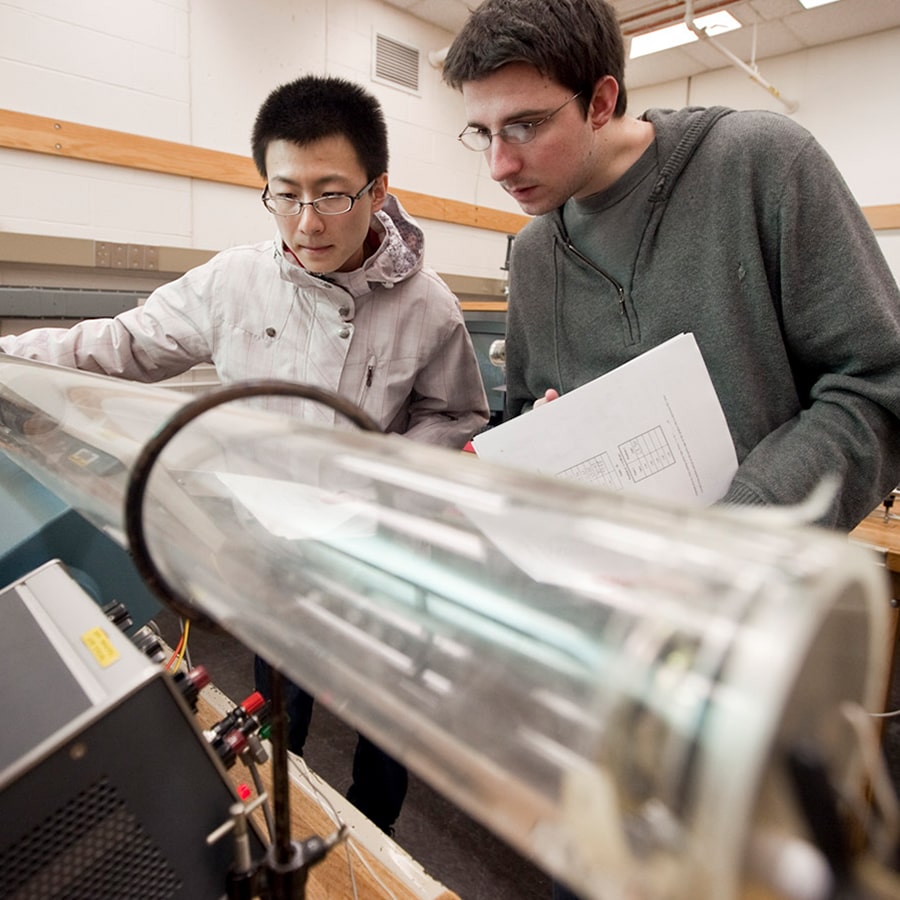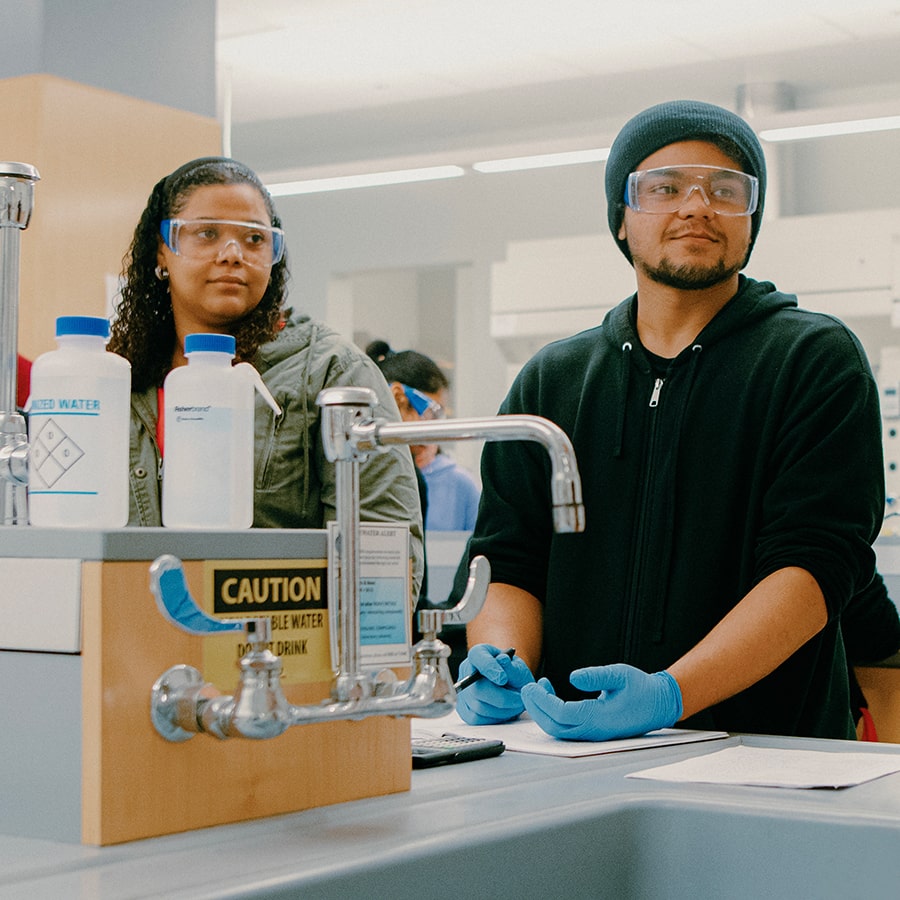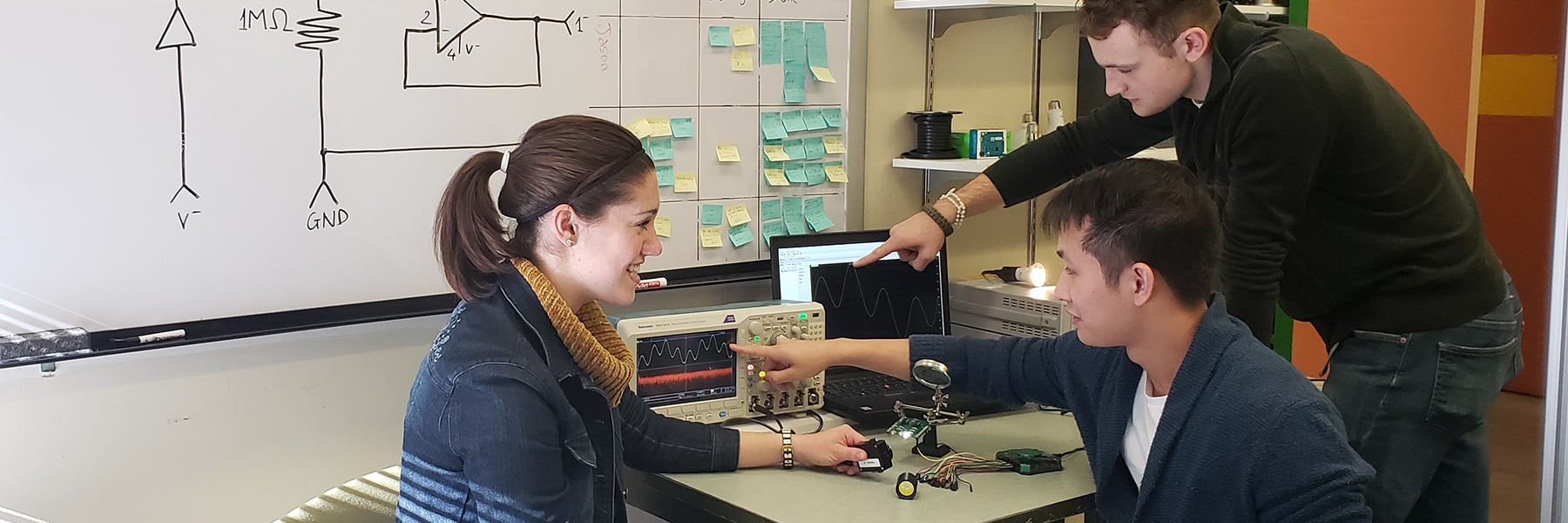Plan Your Education
How to Apply
Apply for Admission
Please review the first-year and transfer apply pages for important information about application requirements, deadlines, and application status check.
Financing Your Education
Become a Beacon and pursue your passion in UMass Boston’s diverse, supportive environment. Many students across our 200+ undergraduate and graduate programs receive financial aid—providing access to an education that’s exceptional and affordable. Click below to learn more about financial aid opportunities and deadlines.
Financial Aid Deadlines & Application Process
Scholarships for First-Year & Transfer Students
Deadlines and Cost
Early action deadline: November 1; Regular Decision Deadline: June 15
Financing Your Education
Become a Beacon and pursue your passion in UMass Boston’s diverse, supportive environment. Many students across our 200+ undergraduate and graduate programs receive financial aid—providing access to an education that’s exceptional and affordable. Click below to learn more about financial aid opportunities and deadlines.
Financial Aid Deadlines & Application Process
Scholarships for First-Year & Transfer Students
For additional information regarding tuition and fees, please visit the Bursar’s Office or send an email to Bursar@umb.edu.
Curriculum
Major Requirements
Complete at least 97 credits from 33 to 34 courses including eighteen introductory courses, nine intermediate and advanced courses, and six to seven concentration courses.
Concentration: Students must choose a concentration from applied physics, computer science, digital electronics, organic chemistry, or physical chemistry.
GPA: A minimum GPA of 2.0 is required from all courses applied toward the major.
Pass/fail: No courses taken pass/fail except for introductory chemistry (CHEM 115, CHEM 116, CHEM 117, CHEM 118) and CS 110 may be applied toward the major.
- Students in the organic or physical chemistry concentrations may not apply introductory chemistry courses taken pass/fail toward the major
- Students in the computer science area of concentration may not apply CS 110 taken pass/fail toward the major
Course Requirements
Introductory Courses (52 Credits)
Physics
- PHYSIC 113 - Fundamentals of Physics I 4 Credit(s)
- PHYSIC 114 - Fundamentals of Physics II 4 Credit(s)
- PHYSIC 181 - Physics Laboratory I 2 Credit(s)
- PHYSIC 182 - Physics Laboratory II; 2 Credit(s)
- PHYSIC 211 - Introduction to Contemporary Physics 3 Credit(s)
Engineering - ENGIN 103 - Introduction to Engineering 3 Credit(s)
-
or
- ENGIN 104 - Introduction to Electrical and Computer Engineering 3 Credit(s)
- ENGIN 231 - Circuit Analysis I 3 Credit(s)
- ENGIN 232 - Circuit Analysis II 3 Credit(s)
- ENGIN 271 - Circuit Lab I 1 Credit(s)
- ENGIN 272 - Circuit Lab II 1 Credit(s)Mathematics
- MATH 140 - Calculus I 4 Credit(s)
- MATH 141 - Calculus II 4 Credit(s)
- MATH 242 - Multivariable and Vector Calculus 4 Credit(s)
Computer Science - CS 110 - Introduction to Computing 4 Credit(s)
Chemistry - CHEM 115 - Chemical Principles I Lecture 3 Credit(s)
- CHEM 116 - Chemical Principles II Lecture 3 Credit(s)
- CHEM 117 - Chemical Principles I Laboratory 2 Credit(s)
- CHEM 118 - Chemical Principles II Laboratory 2 Credit(s)
Intermediate and Advanced Courses (27 to 28 Credits)
-
Intermediate Physics
- PHYSIC 214 - Thermodynamic 3 Credit(s)
- PHYSIC 312 - Mechanics 3 Credit(s)
- PHYSIC 321 - Theory of Electricity and Magnetism I 3 Credit(s)
-
Laboratory Courses (complete three) - PHYSIC 281 - Physical Laboratory I 3 Credit(s)
- PHYSIC 382 - Intermediate Laboratory 3 Credit(s)
- ENGIN 241 - Digital Systems with Lab 4 Credit(s)
-
or
- ENGIN 304 - Engineering Design 3 Credit(s)
-
or
- >ENGIN 365 - Electronics I with Lab 4 Credit(s)
-
or
- PHYSIC 298 - Special Topics Laboratory 1-3 Credit(s)
-
or
- PHYSIC 398 - Special Topics Laboratory 1-3 Credit(s)
-
Advanced Physics - PHYSIC 322 - Theory of Electricity and Magnetism II & 3 Credit(s)
- PHYSIC 421 - Atomic Physics and Introduction to Quantum Mechanics 3 Credit(s)
-
Mathematics - MATH 270 - Applied Ordinary Differential Equations 3 Credit(s)
Concentration (18 to 21 Credits)
Choose a concentration from below.
- Applied Physics Concentration
- Computer Science Concentration
- Digital Electronics Concentration
- Organic Chemistry Concentration
- Physical Chemistry Concentration
For more information on curriculum, including course descriptions and degree requirements, visit the Academic Catalog.
Learning Outcomes
- Students acquire appropriate competence in physics foundations and have been given a working knowledge of methodologies in a wide range of sub-fields in modern physics.
- Students acquire competence in laboratory skills and can work independently.
- Students acquire the ability to select from an array of analytic and computational tools to solve specific problems.
- Students are able to scientifically justify this decision and gauge its efficacy.
- Students acquire competence in laboratory skills and can work independently.
- Students acquire the ability to select from an array of analytic and computational tools to solve specific problems.
- Students are able to scientifically justify this decision and gauge its efficacy.
- Students demonstrate the ability to extend ideas from one area of physics to problems in other areas or disciplines.
- Students are broadly aware of the challenging and open problems of the day.
- Students are encouraged to engage in research at the earliest opportunity.
- Students can relate and articulate the connections between abstract theoretical constructs and reality.
- For Bachelor of Science majors in Physics and Engineering Physics our goal is to prepare our students for professional careers in science. This includes preparing them to be successful in graduate programs in Physics or other fields, but to also to make them aware of a wider array of post-graduate and job options.
Applied Physics Concentration
Concentration Requirements
Complete 18 to 20 credits from six courses including three engineering electives and three applied physics electives.
Course Requirements
Engineering Electives (9 to 10 Credits)
Complete three from below
- ENGIN 202 - Statics (Mechanical Engineering) 3 Credit(s)
- ENGIN 211L - Engineering Mathematics 3 Credit(s)
- ENGIN 221 - Strength of Materials I 3 Credit(s)
- ENGIN 321 - Signals and Systems 3 Credit(s)
- ENGIN 322 - Probability and Random Processes 3 Credit(s)
- ENGIN 331 - Fields & Waves 3 Credit(s)
- ENGIN 346 - Embedded Systems 3 Credit(s)
- ENGIN 351 - Fundamentals of Semiconductor Devices 3 Credit(s)
- ENGIN 366 - Electronics II with Lab 4 Credit(s)
Applied Physics Electives (9 to 10 Credits)
Complete three from below
- PHYSIC 247 - Quantum Information I: Fundamentals of Quantum Physics 3 Credit(s)
- PHYSIC 297 - Special Topics in Physics 1-3 Credit(s)
- PHYSIC 331 - Optics 3 Credit(s)
- PHYSIC 347 - Quantum Information II: Quantum Computation 3 Credit(s)
- PHYSIC 350 - Statistical Physics 3 Credit(s)
- PHYSIC 351 - Quantum Information III: Physics and Information 3 Credit(s)
- PHYSIC 362 - Computational Science 4 Credit(s)
- PHYSIC 397 - Special Topics in Physics 1-3 Credit(s)
- PHYSIC 447 - Quantum Information IV: Quantum Science Applications 3 Credit(s)
- PHYSIC 479 - Readings in Physics I 1-4 Credit(s)
- PHYSIC 480 - Readings in Physics II 1-3 Credit(s)
- PHYSIC 487 - Research in Physics I 1-3 Credit(s)
- PHYSIC 488 - Research Physics II 1-3 Credit(s)
- PHYSIC 497 - Special Topics in Physics 1-3 Credit(s)
- PHYSIC 498 - Special Topics Laboratory 1-3 Credit(s)
Computer Science Concentration
Concentration Requirements
Complete at least 19 credits from six courses including two engineering electives, two required computer science courses, and two computer science electives.
Course Requirements
Engineering Electives (6 to 7 Credits)
Complete two from below.
- ENGIN 202 - Statics (Mechanical Engineering) 3 Credit(s)
- ENGIN 211L - Engineering Mathematics 3 Credit(s)
- ENGIN 221 - Strength of Materials I 3 Credit(s)
- ENGIN 321 - Signals and Systems 3 Credit(s)
- ENGIN 322 - Probability and Random Processes 3 Credit(s)
- ENGIN 331 - Fields & Waves 3 Credit(s)
- ENGIN 346 - Embedded Systems 3 Credit(s)
- ENGIN 351 - Fundamentals of Semiconductor Devices 3 Credit(s)
- ENGIN 366 - Electronics II with Lab 4 Credit(s)
Required Computer Science Courses (7 Credits)
- CS 210 - Intermediate Computing with Data Structures 4 Credit(s)
- CS 240 - Programming in C 3 Credit(s)
Computer Science Electives (6 Credits)
Complete two courses from CS 310 and higher.
Digital Electronics Concentration
Concentration Requirements
Complete at least 19 credits from six courses including two engineering electives, two required computer science courses, and two digital electronics electives.
Course Requirements
Engineering Electives (6 to 7 Credits)
Complete two from below.
- ENGIN 202 - Statics (Mechanical Engineering) 3 Credit(s)
- ENGIN 211L - Engineering Mathematics 3 Credit(s)
- ENGIN 221 - Strength of Materials I 3 Credit(s)
- ENGIN 321 - Signals and Systems 3 Credit(s)
- ENGIN 322 - Probability and Random Processes 3 Credit(s)
- ENGIN 331 - Fields & Waves 3 Credit(s)
- ENGIN 346 - Embedded Systems 3 Credit(s)
- ENGIN 351 - Fundamentals of Semiconductor Devices 3 Credit(s)
- ENGIN 366 - Electronics II with Lab 4 Credit(s)
Required Computer Science Courses (7 Credits)
- CS 210 - Intermediate Computing with Data Structures 4 Credit(s)
- CS 240 - Programming in C 3 Credit(s)
Digital Electronics Electives (6 to 7 Credits)
Complete two from below.
- ENGIN 341 - Advanced Digital Design 3 Credit(s)
- ENGIN 346 - Embedded Systems 3 Credit(s)
- ENGIN 351 - Fundamentals of Semiconductor Devices 3 Credit(s)
- ENGIN 366 - Electronics II with Lab 4 Credit(s)
- ENGIN 441 - System on Chip (SoC) Design 3 Credit(s)
- ENGIN 446 - Computer Architecture Design 3 Credit(s)
- ENGIN 451 - Semiconductor Device Design, Simulation and Fabrication 3 Credit(s)
Organic Chemistry Concentration
Concentration Requirements
Complete at least 18 credits from six to seven courses including two engineering electives and four track courses.
Course Requirements
Engineering Electives (6 to 7 Credits)
Complete two from below.
- ENGIN 202 - Statics (Mechanical Engineering) 3 Credit(s)
- ENGIN 211L - Engineering Mathematics 3 Credit(s)
- ENGIN 221 - Strength of Materials I 3 Credit(s)
- ENGIN 321 - Signals and Systems 3 Credit(s)
- ENGIN 322 - Probability and Random Processes 3 Credit(s)
- ENGIN 331 - Fields & Waves 3 Credit(s)
- ENGIN 346 - Embedded Systems 3 Credit(s)
- ENGIN 351 - Fundamentals of Semiconductor Devices 3 Credit(s)
- ENGIN 366 - Electronics II with Lab 4 Credit(s)
Organic Chemistry Courses (13 Credits)
- CHEM 251 - Organic Chemistry I Lecture 3 Credit(s)
- CHEM 252 - Organic Chemistry II Lecture 3 Credit(s)
- CHEM 255 - Organic Chemistry I Laboratory 2 Credit(s)
- CHEM 256 - Organic Chemistry II Laboratory 2 Credit(s)
- CHEM 351 - Organic Qualitative Analysis 3 Credit(s)
Physical Chemistry Concentration
Concentration Requirements
Complete at least 18 credits from 6 courses including two engineering electives and four physical chemistry courses.
Course Requirements
Engineering Electives (6 to 7 Credits)
Complete two from below
- ENGIN 202 - Statics (Mechanical Engineering) 3 Credit(s)
- ENGIN 211L - Engineering Mathematics 3 Credit(s)
- ENGIN 221 - Strength of Materials I 3 Credit(s)
- ENGIN 321 - Signals and Systems 3 Credit(s)
- ENGIN 322 - Probability and Random Processes 3 Credit(s)
- ENGIN 331 - Fields & Waves 3 Credit(s)
- ENGIN 346 - Embedded Systems 3 Credit(s)
- ENGIN 351 - Fundamentals of Semiconductor Devices 3 Credit(s)
- ENGIN 366 - Electronics II with Lab 4 Credit(s)
Physical Chemistry Courses (12 Credits)
- CHEM 312 - Physical Chemistry 4 Credit(s)
and - CHEM 314 - Physical Chemistry Laboratory 2 Credit(s)
Choose one pair from the following: - CHEM 311 - Analytical Chemistry 4 Credit(s)
and - CHEM 313 - Analytical Chemistry Laboratory 2 Credit(s)
- CHEM 369 - Chemical Structure 4 Credit(s)
and - CHEM 379 - Chemical Structure Lab 2 Credit(s)

Department of Physics
Learn more about UMass Boston's Physics department, our research, and our faculty.
Explore the Department of Physics
College of Science & Mathematics
Learn more about the faculty, research, and programs that make up our College of Science and Mathematics.
Explore Now